Shed Hunt with a Purpose and Plan in Mind
Shed hunting is the new buzz. People are flocking to this post-season activity. And for good reason. It's fun. It's easy. It's something the whole family can get out and do together.
But for those looking to do it, there are a few things you need to know before heading afield. I went a few days ago and snapped some photos from my first shed hunt of the year. I decided to share with our readers the lessons I've learned over the years. I didn't find a lot of sheds on this trip. But I did have fun and learned a lot about a property I hunted last fall.
Remember these tips when you head afield in the coming days and weeks to shed hunt.
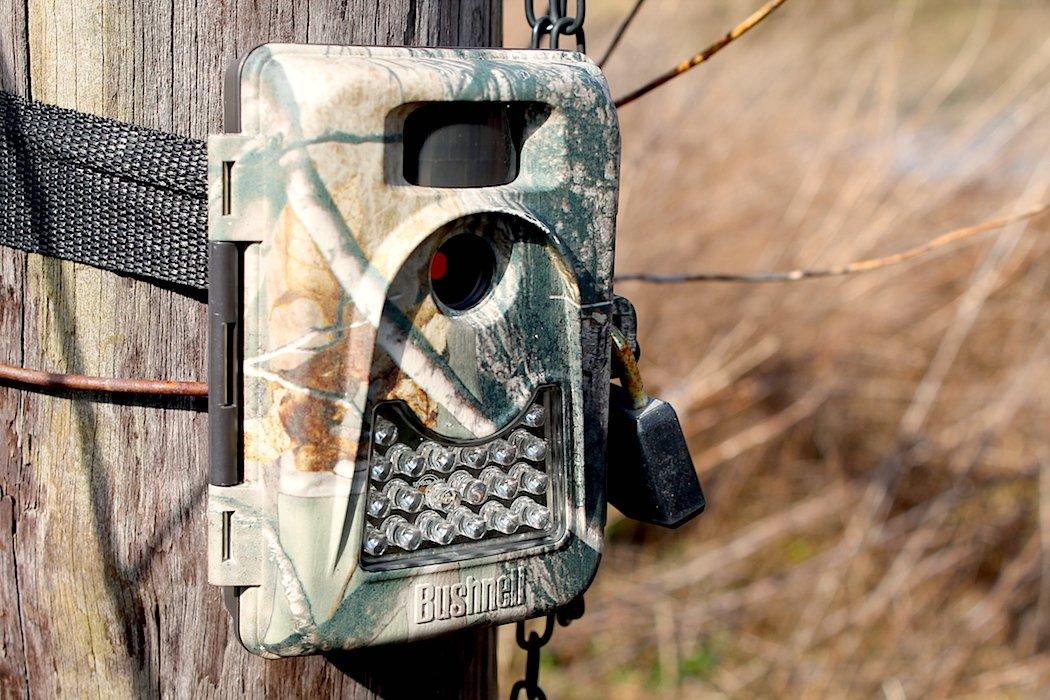
I allow my trail cameras to tell me when to shed hunt. When I stop seeing antlers and start seeing bloody pedicles, it's time to hit the woods. Moving in too early will push bucks that are still carrying their head gear out of the area. Moving in too late allows other hunters and pesky animals time to find dropped antlers before you.
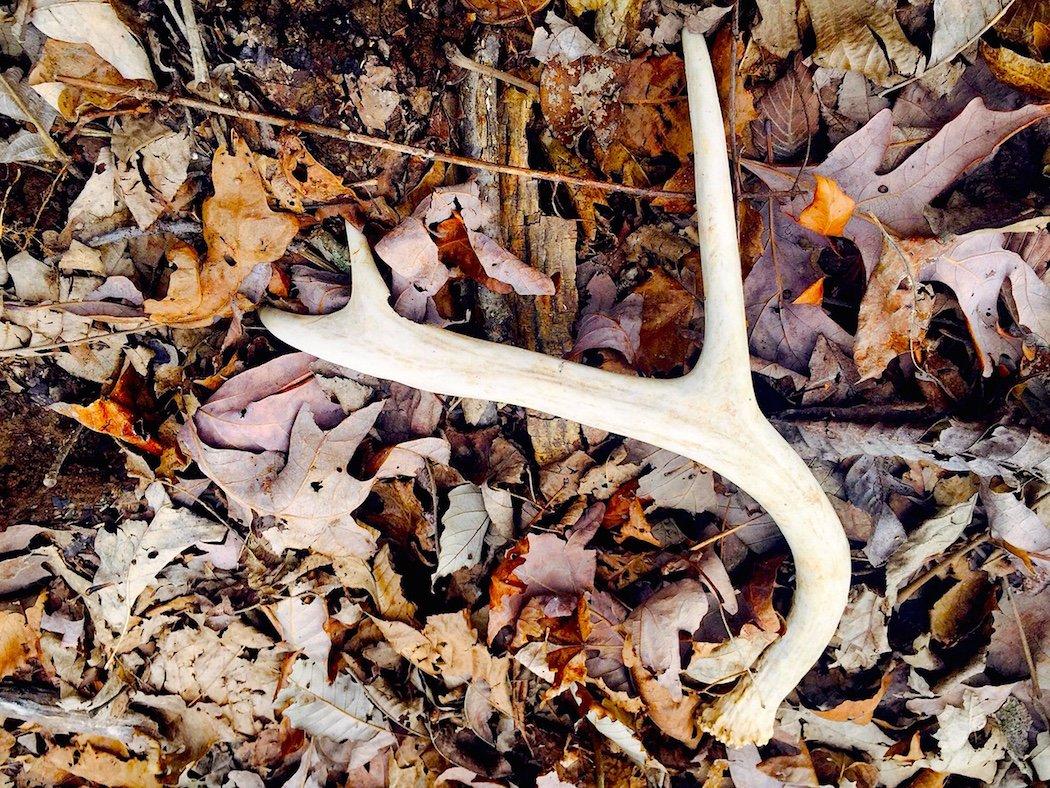
Don't look for the entire antler. Look for the tip of a tine. Or look for a small ivory-colored object. Looking for small details will help find a lot more sheds than if looking for the entire antler.
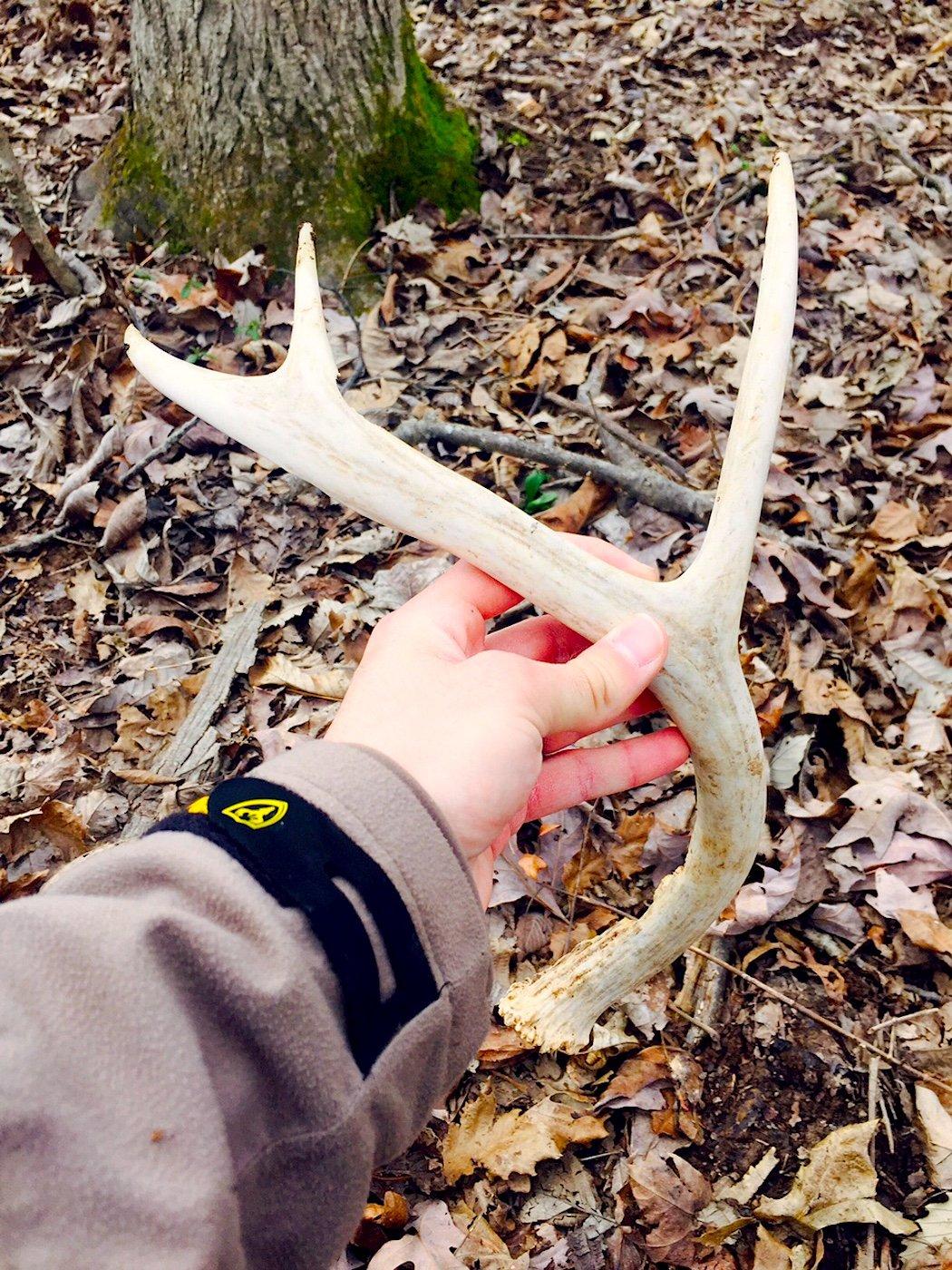
As mentioned, hunters and animals can put a damper on shed-hunting efforts. Get out and grab those pieces of bone before the tree rats and song dogs do. You'll notice a few gnaw marks on the edge of the antler base. Also, get them before other hunters do. This photo is of an antler that'd been been gnawed on by squirrels.
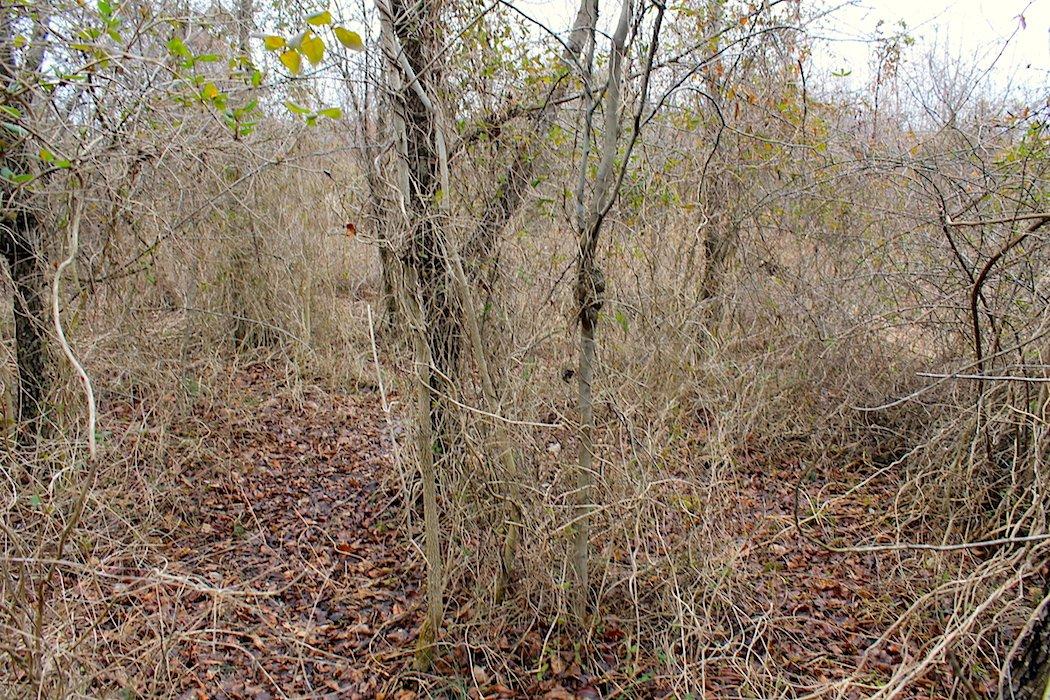
Deer bed in thick cover. This time of year, that's where mature bucks stay most of the time. It only makes sense to look through this cover as you work your way across it. It isn't uncommon to find a shed or two (at least) in these type areas.
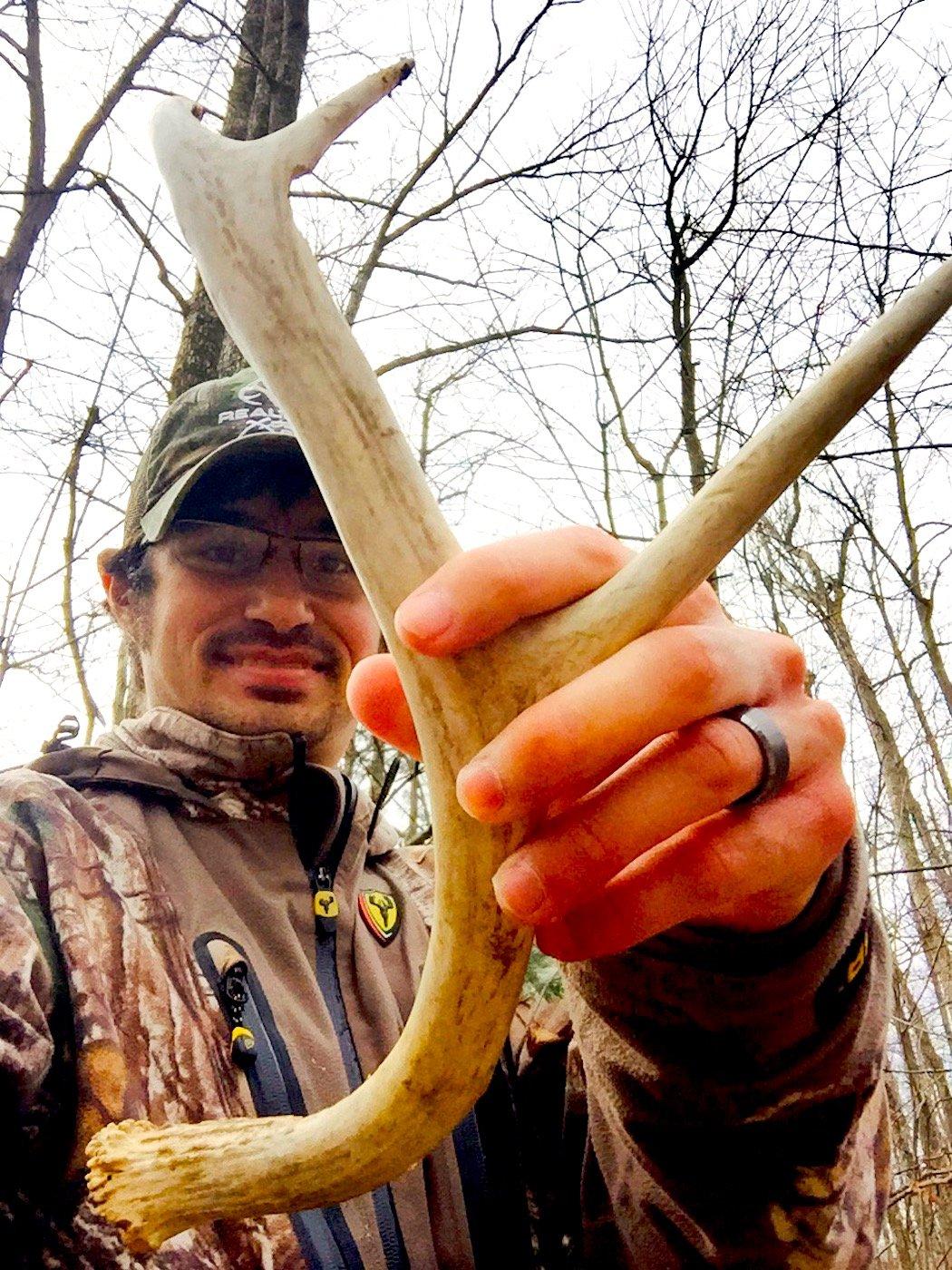
You won't find a shed antler under every tree. But you will find one every once in a while. It took several hours of shed hunting before I found this first shed of the day.
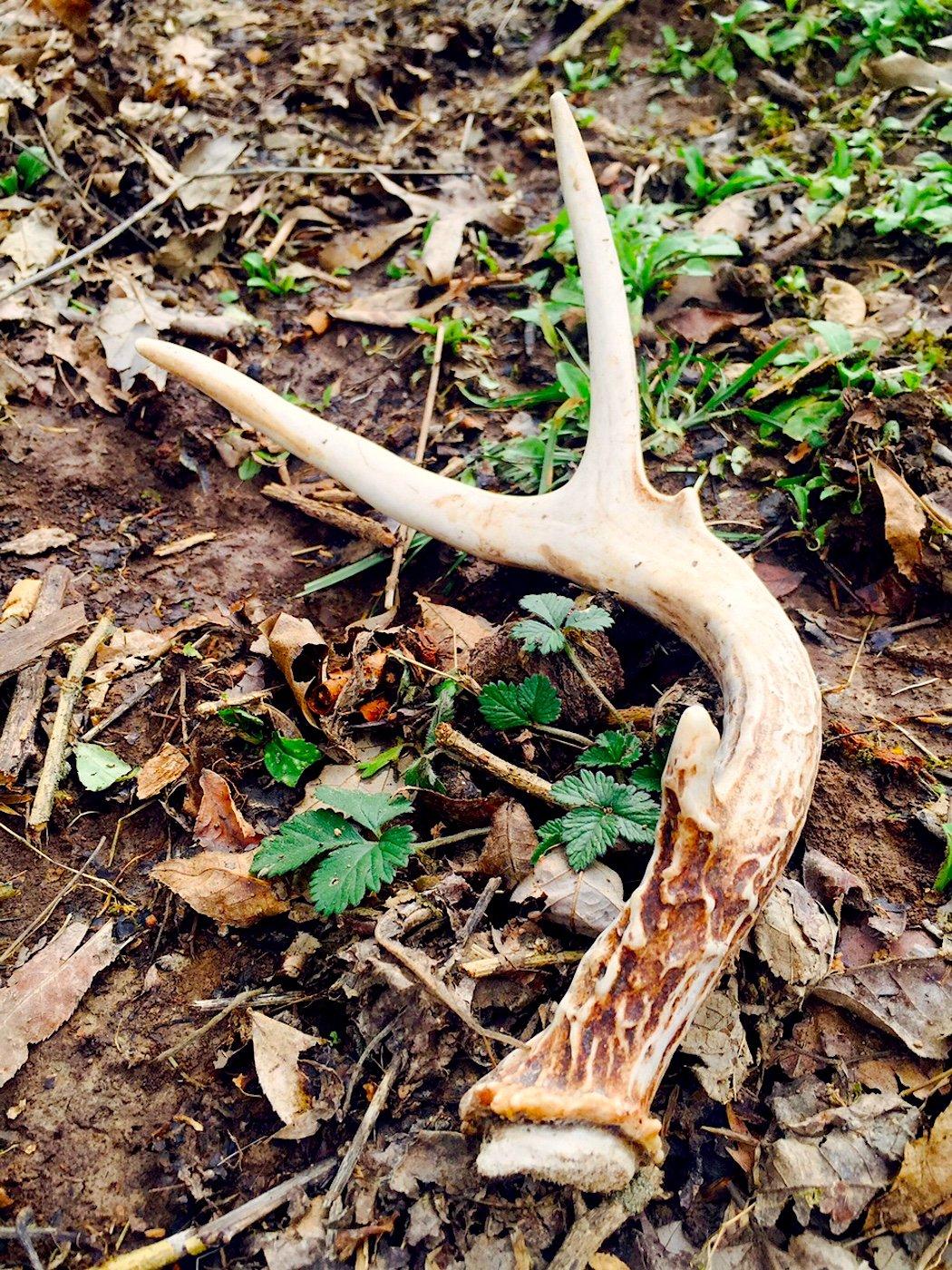
Major trails are great places to find shed antlers. That's where I found this one. Grid areas off on a map and work each section individually. That helps ensure you don't miss an area.
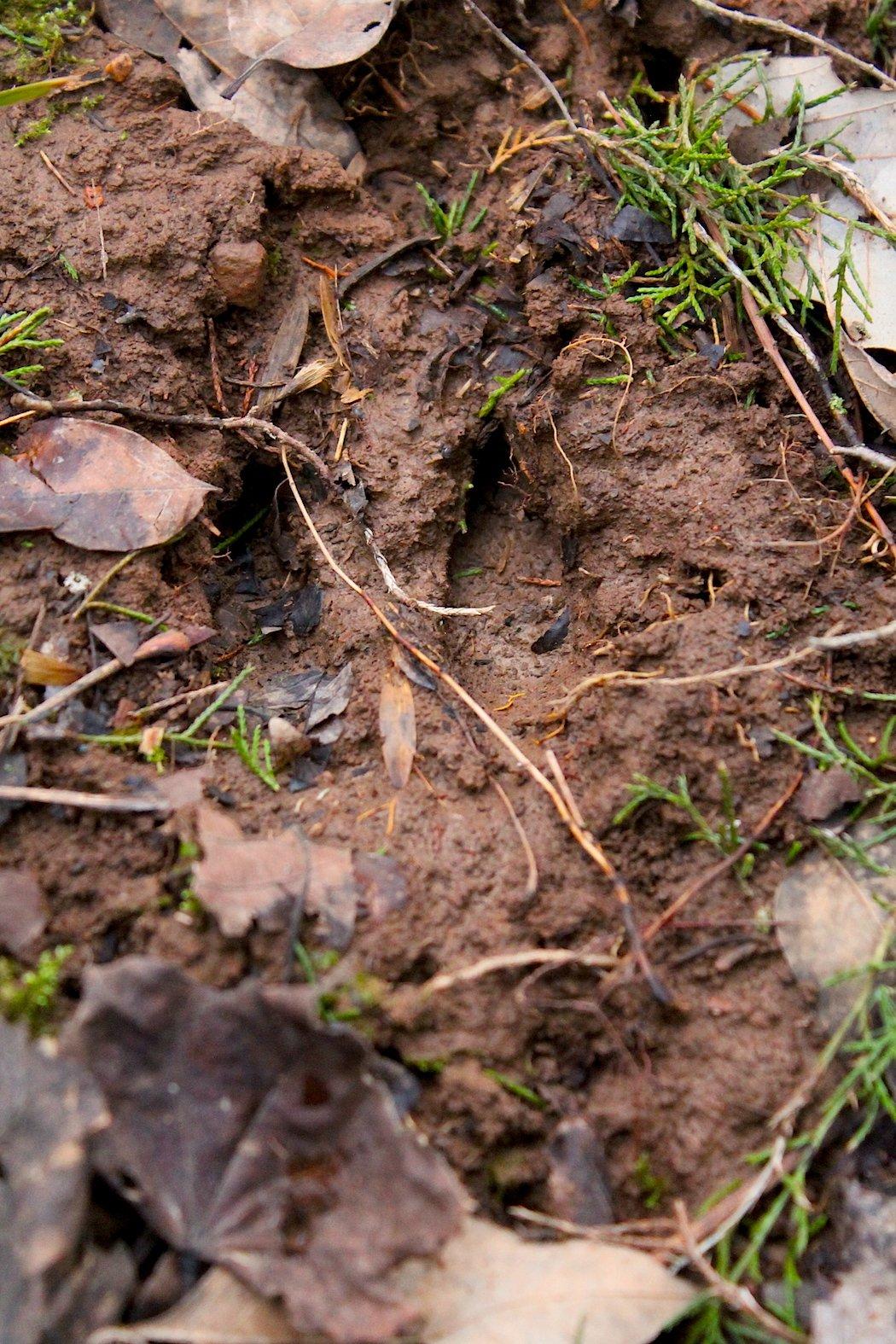
Once major trails are checked off the list, work the smaller ones. Walk along every trail you can find. Carry your phone or GPS as you do so and track your path on the aerial. Trace that trail on a printed aerial map. Do that for all trails you walk. You'll eventually see a pattern and network of trails once all of them are marked on the aerial map. This will help you understand how deer use a property.
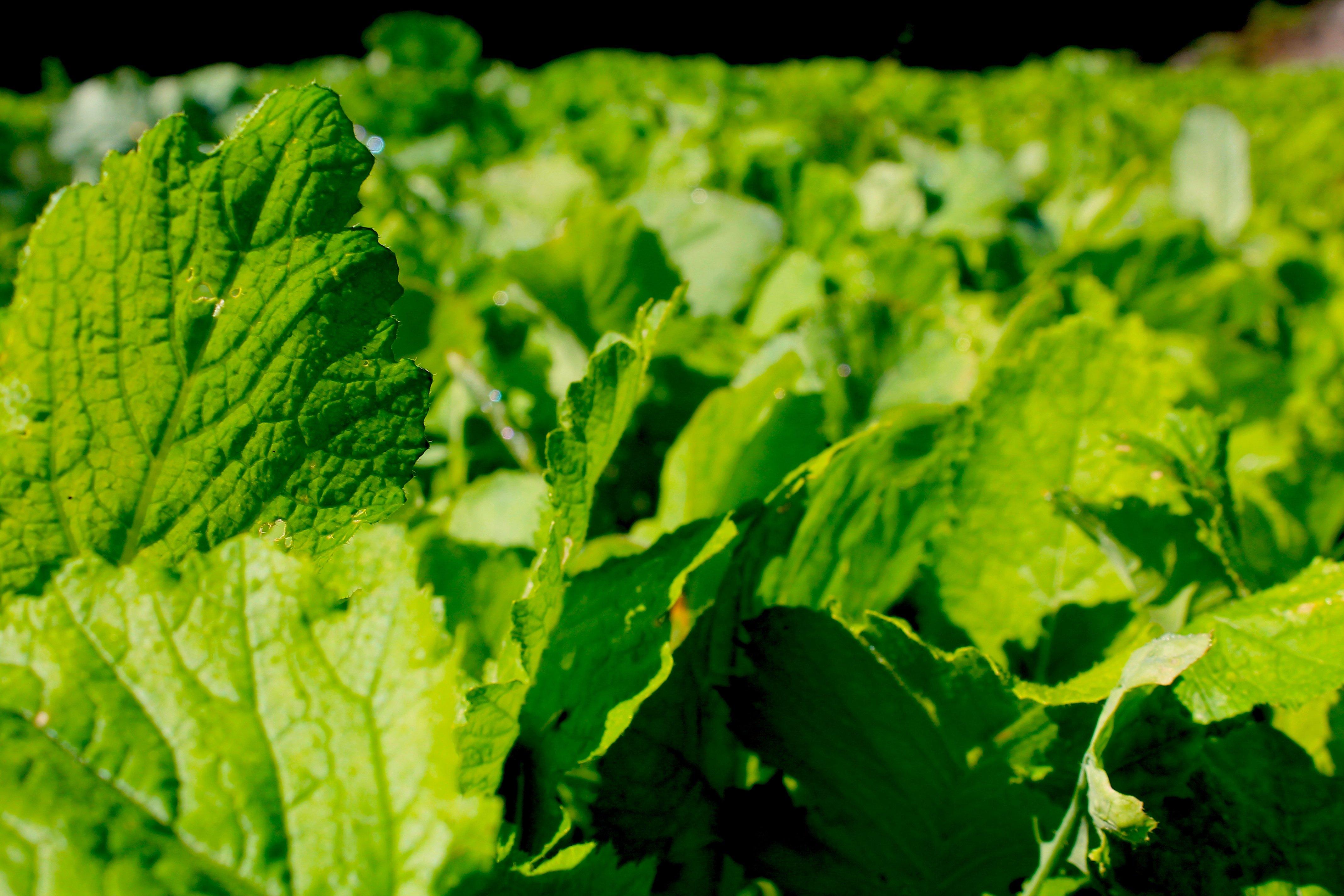
Food sources are great for finding sheds in and around. Don't ignore them. They're shed-antler magnets.
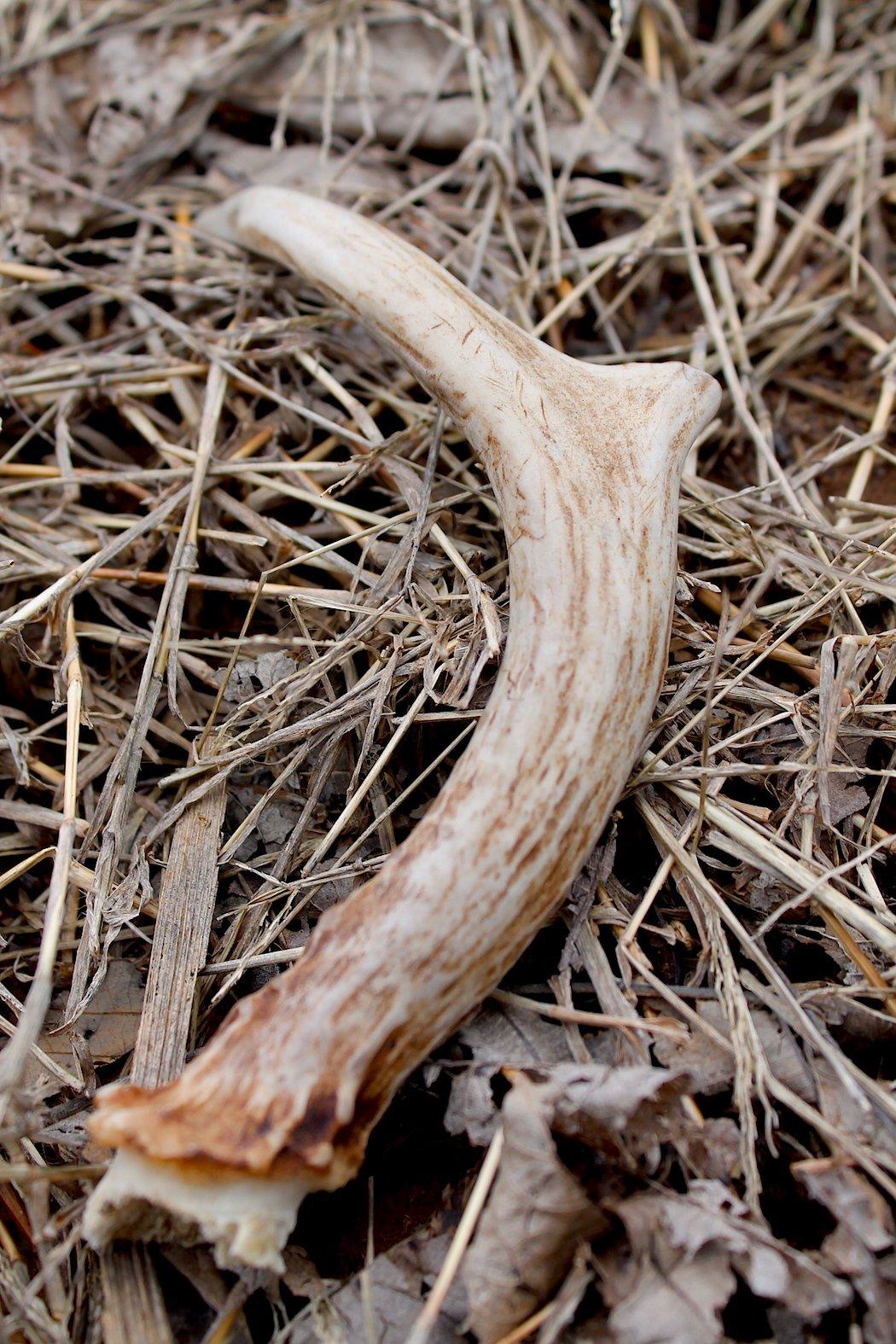
This shed was located on the edge of a massive corn field. It's hard to spot antlers in open territory, but it can be done.
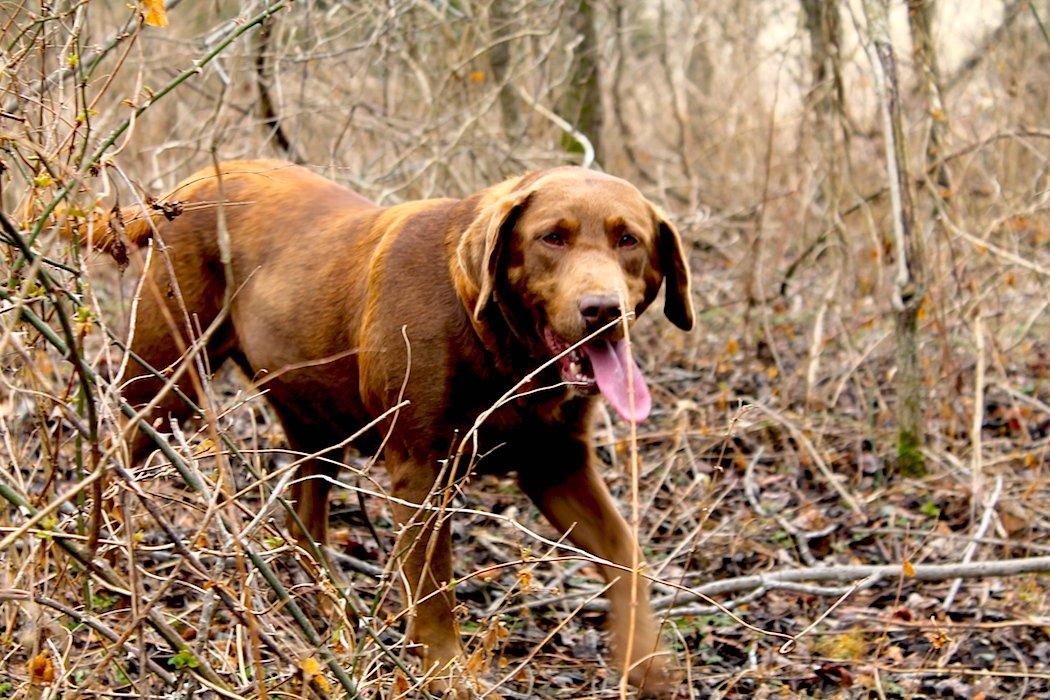
Using a shed dog can work wonders. This is one of my friend's shed dogs. I don't have my own...yet. But I plan to change that in the near future.
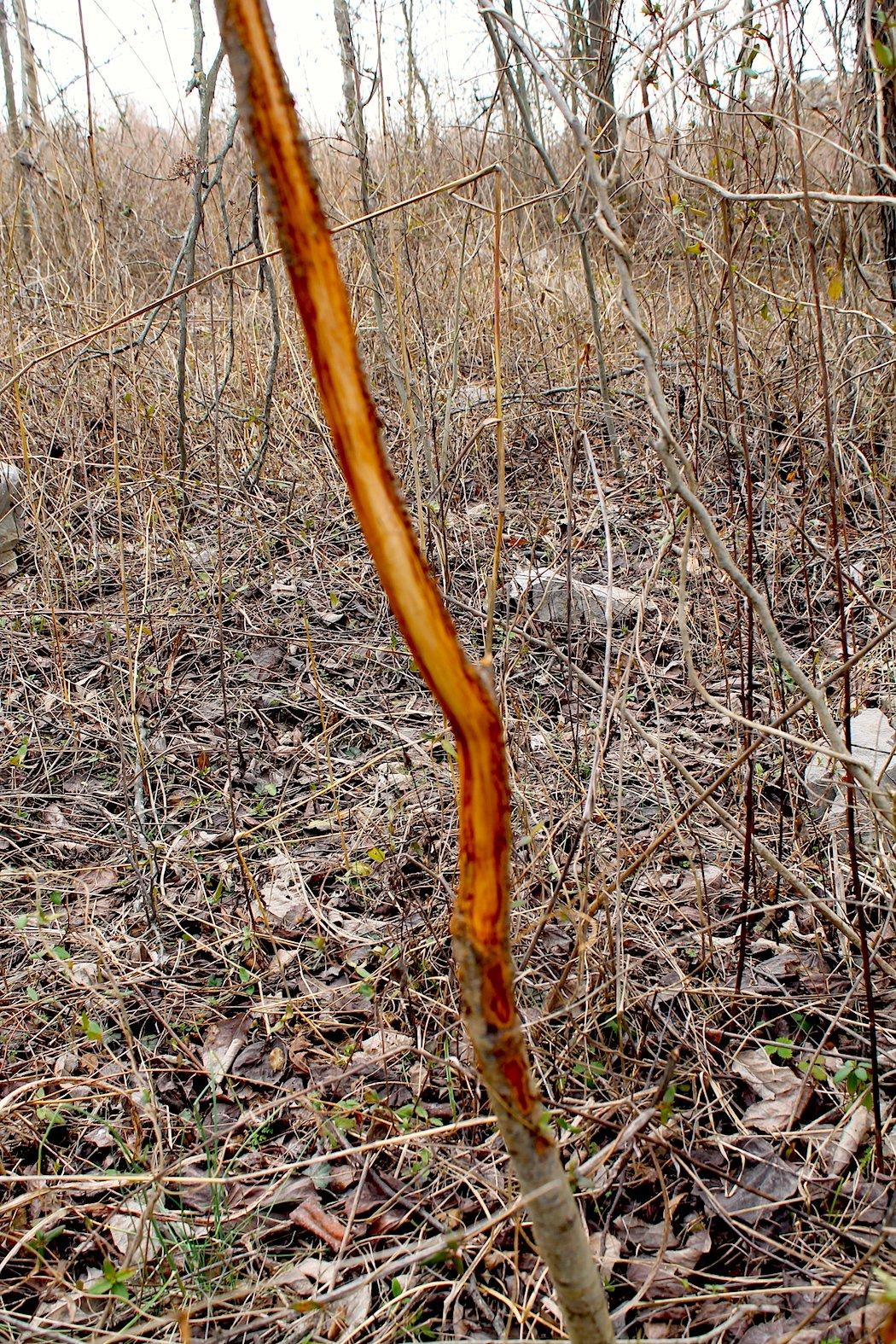
Scout while you're shed hunting. This rub was one of many I discovered in a matter of hours. Plot these on aerial maps, too.
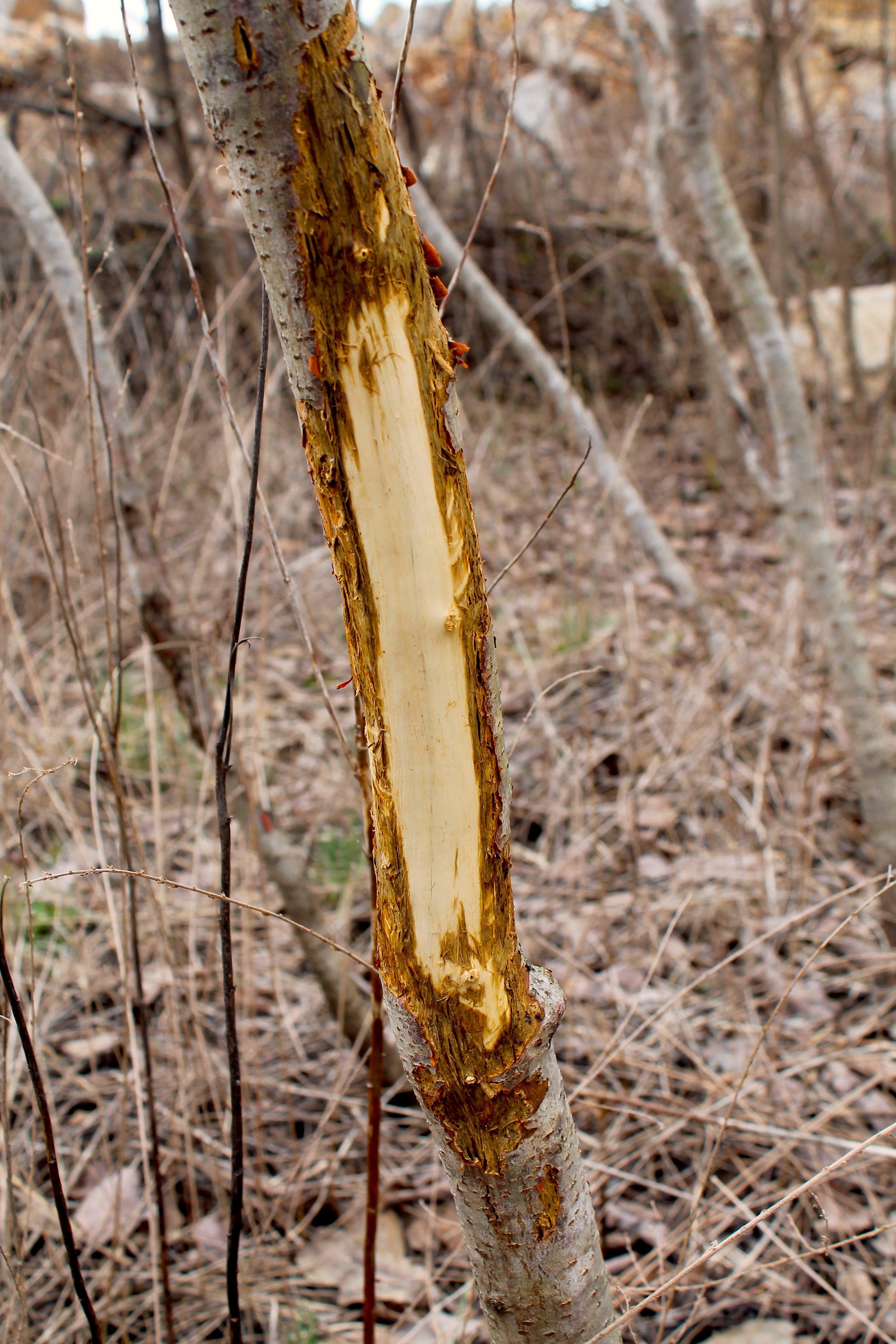
One thing you learn by plotting rut sign is how bucks maneuver about the property you hunt during the pre-rut. That's a big help. Go ahead and hang preliminary stands accordingly.






